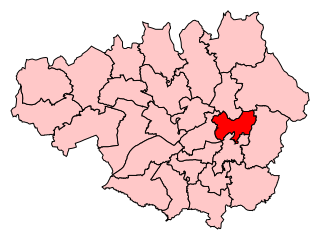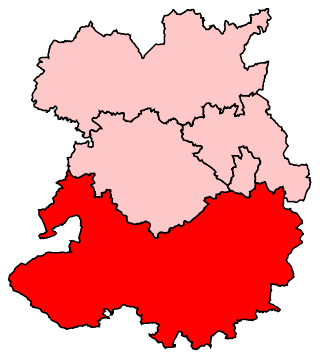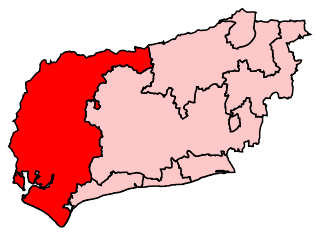Related Research Articles

The House of Lords is the upper house of the Parliament of the United Kingdom. Like the lower house, the House of Commons, it meets in the Palace of Westminster in London, England. One of the oldest institutions in the world, its origins lie in the early 11th century and the emergence of bicameralism in the 13th century.

The Palace of Westminster is the meeting place of the Parliament of the United Kingdom and is located in London, England. It is commonly called the Houses of Parliament after the House of Commons and the House of Lords, the two legislative chambers which occupy the building. The palace is one of the centres of political life in the United Kingdom; "Westminster" has become a metonym for the UK Parliament and the British Government, and the Westminster system of government commemorates the name of the palace. The Elizabeth Tower of the palace, nicknamed Big Ben, is a landmark of London and the United Kingdom in general. The Palace of Westminster has been a Grade I listed building since 1970 and part of a UNESCO World Heritage Site since 1987.

The Westminster system, or Westminster model, is a type of parliamentary government that incorporates a series of procedures for operating a legislature, first developed in England. Key aspects of the system include an executive branch made up of members of the legislature, and that is responsible to the legislature; the presence of parliamentary opposition parties; and a ceremonial head of state who is separate from the head of government. The term derives from the Palace of Westminster, which has been the seat of the Westminster Parliament in England and later the United Kingdom since the 13th century. The Westminster system is often contrasted with the presidential system that originated in the United States, or with the semi-presidential system, based on the government of France.

The Bill of Rights 1689 is an Act of the Parliament of England that set out certain basic civil rights and clarified who would be next to inherit the Crown. It remains a crucial statute in English constitutional law.
Representative democracy is a type of democracy where representatives are elected by the public. Nearly all modern Western-style democracies function as some type of representative democracy: for example, the United Kingdom, Germany, France, and the United States. This is different from direct democracy.

Anthony Neil Wedgwood Benn, known between 1960 and 1963 as The 2nd Viscount Stansgate, was a British Labour Party politician who served as a Cabinet minister in the 1960s and 1970s. He was the Member of Parliament for Bristol South East and Chesterfield for 47 of the 51 years between 1950 and 2001. He later served as President of the Stop the War Coalition from 2001 to 2014.

The constitution of the United Kingdom is an uncodified constitution made up of various statutes, judicial precedents, convention, treaties and other sources. Beginning in the Middle Ages, the constitution developed gradually in response to various crises. By the 20th century, the British monarchy had become a constitutional and ceremonial monarchy, and Parliament developed into a representative body exercising parliamentary sovereignty.

A parliamentary system, or parliamentary democracy, is a system of democratic government where the head of government derives their democratic legitimacy from their ability to command the support ("confidence") of the legislature, typically a parliament, to which they are accountable.
Bicameralism is a type of legislature that is divided into two separate assemblies, chambers, or houses, known as a bicameral legislature. Bicameralism is distinguished from unicameralism, in which all members deliberate and vote as a single group. As of 2022, roughly 40% of the world's national legislatures are bicameral, while unicameralism represents 60% nationally and much more at the subnational level.
The first modern parliaments date back to the Middle Ages. In 1188 Alfonso IX, King of Leon convened the three states in the Cortes of León and its considered by UNESCO the first sample of modern parliamentarism in the history of Europe, with the presence of the common people through elected representatives.
The Reform Acts are legislation enacted in the United Kingdom in the 19th and 20th century to enfranchise new groups of voters and to redistribute seats in the House of Commons of the Parliament of the United Kingdom.

Canterbury is a constituency in Kent represented in the House of Commons of the UK Parliament since 2017 by Rosie Duffield of the Labour Party.

Great Yarmouth is a constituency represented in the House of Commons of the Parliament of the United Kingdom since the 2010 general election by Sir Brandon Lewis, a Conservative.

Aylesbury is a constituency represented in the House of Commons of the UK Parliament since 2019 by Rob Butler of the Conservative Party.

Ashton-under-Lyne is a constituency in the House of Commons of the UK Parliament. It has been represented since 2015 by Angela Rayner, who has served as Deputy Leader of the Labour Party since 2020.

Lincoln is a constituency in Lincolnshire, England represented in the House of Commons of the UK Parliament since 2019 by Karl McCartney, a Conservative Party politician.

South Derbyshire is a constituency represented in the House of Commons of the UK Parliament since 2010 by Heather Wheeler, a Conservative.

Ludlow is a constituency in Shropshire represented in the House of Commons of the UK Parliament since 2005 by Philip Dunne, a member of the Conservative Party.

Chichester is a constituency in West Sussex, represented in the House of Commons of the UK Parliament since 2017 by Gillian Keegan, a Conservative.
Parliamentary sovereignty, also called parliamentary supremacy or legislative supremacy, is a concept in the constitutional law of some parliamentary democracies. It holds that the legislative body has absolute sovereignty and is supreme over all other government institutions, including executive or judicial bodies. It also holds that the legislative body may change or repeal any previous legislation and so it is not bound by written law or by precedent.
References
- ↑ Oxford Dictionary of Quotations, revised 4th ed, 1996, p. 141
- ↑ Parliament. CUP Archive. 1957. p. 517; "UK Politics: Talking Politics The 'Mother of Parliaments'". BBC Talking Politics. 3 June 1998. Retrieved 23 April 2016; "Full text of Obama's speech to UK parliament". CNN. 25 May 2011. Retrieved 23 April 2016; "Britain and France Get Poor Marks in Democracy Ranking". Spiegel Online. 2 January 2011. Retrieved 23 April 2016; "A Makeover for the Mother of Parliaments". The New York Times. 11 July 2015. Retrieved 23 April 2016.
- ↑ Seidle, F. Leslie; Docherty, David C. (2003). Reforming parliamentary democracy. McGill-Queen's University Press. p. 3. ISBN 9780773525085.
- ↑ Julian Go (2007). "A Globalizing Constitutionalism?, Views from the Postcolony, 1945-2000". In Arjomand, Saïd Amir (ed.). Constitutionalism and political reconstruction. Brill. pp. 92–94. ISBN 978-9004151741 ; "How the Westminster Parliamentary System was exported around the World". University of Cambridge. 2 December 2013. Retrieved 16 December 2013.